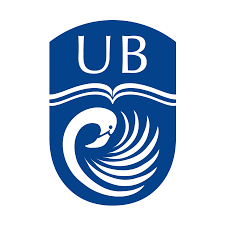Challenges and Support for Pre-service Teachers’ Virtual Teaching and Practicums: Implications for Bahamian Educational Systems
DOI:
https://doi.org/10.15362/ijbs.v27i0.433Keywords:
Teacher education, Online instruction, Virtual teaching, Internet videoconferencingAbstract
Teacher education programmes, nationally and internationally, are unique both at the undergraduate and graduate levels. Specifically, in the Bahamian educational system, they are designed to produce certified K-12 teachers who demonstrate academic and professional excellence in a variety of subject areas. These programmes incorporate a theoretical component and a culminating practical experience that requires pre-service teachers to be evaluated on the quality of their teaching. Normally the culminating experience has been completed in the traditional face-to-face setting. However, the onset of COVID-19 resulted in an immediate imposition of a virtual teaching practicum. This integrated literature review explores the challenges pre-service teachers faced and the support systems they needed during a virtual teaching practicum and addresses implications for practice in a Bahamian setting.References
Arenson, K. (1998, October 7). NYU sees profit in virtual classes. New York Times. https://www.nytimes.com
/1998/10/07/nyregion/nyu-sees-profits-in-virtual-classes.html
Bandura, A. (1986). Social foundations of thought and action: A social cognitive theory. Prentice Hall. https://doi-org.lib-e2.lib.ttu.edu/10.2307/2071177
Bergstrand, K., & Savage, S. V. (2013). The chalkboard versus the avatar: Comparing the effectiveness of online and in-class courses. Teaching Sociology, 41(3), 294–306. https://doi-org.lib-e2.lib.ttu.edu/10.1177/0092055X13479949
Brinia, V., & Psoni, P. (2021). Online teaching practicum during COVID-19: The case of a teacher education program in Greece. Journal of Applied Research in Higher Education. https://doi.org/10.1108/JARHE-07-2020-0223
Burgess, S. B., & Sievertsen, H. H. (2020, April 1). Schools, skills, and learning: The impact of COVID-19 on education. VOX EU. https://voxeu.org/article/impact-covid-19-education
Carroll, A., Forlin, C., & Jobling, A. (2003). The impact of teacher training in special education on the attitudes of Australian preservice general educators towards people with disabilities. Teacher Education Quarterly, 30(3), 65–79. https://eric.ed.gov/?id=EJ852365
Castle, S. R., & McGuire, C. J. (2010). An analysis of student self-assessment of online, blended, and face-to-face learning environments: Implications for sustainable education delivery. International Education Studies, 3(3), 36–40. https://eric.ed.gov/?id=EJ1065994
Cooper, R., Warren, L., Hogan-Chapman, A., & Mills, L. (2018, October). Pre-service teachers’ self-efficacy toward online teaching. In E-learn: World conference on e-learning in corporate, government, healthcare, and higher education (pp. 287–292). Association for the Advancement of Computing in Education (AACE). https://www.learntechlib.org/p/184972/
Dawson, K., & Norris, A. (2000). SIGTE Award 2000: Preservice teachers’ experiences in a K—12/university technology-based field initiative: Benefits, facilitators, constraints, and implications for teacher educators. Journal of Computing in Teacher Education, 17(1), 4–12. https://doi.org/10.1080/10402454.2000.10784402
Dorner, H., & Kumar, S. (2016). Online collaborative mentoring for technology integration in pre-service teacher education. TechTrends, 60(1), 48–55. https://doi.org/10.1007/s11528-015-0016-1
Duncan, H. E., & Barnett, J. (2009). Learning to teach online: What works for pre-service teachers. Journal of Educational Computing Research, 40(3), 357–376. https://doi.org/10.2190/EC.40.3.f
Ersin, P., Atay, D., & Mede, E. (2020). Boosting preservice teachers’ competence and online teaching readiness through e-practicum during the COVID-19 outbreak. International Journal of TESOL Studies, 2(2), 112-124. https://doi.org/10.46451/ijts.2020.09.09
Farmer, H. & Ramsdale, J. (2016). Teaching competencies for the online environment. Canadian Journal of Learning and Technology / La revue canadienne de l’apprentissage et de la technologie, 42(3), 1-17. https://www.learntechlib.org/p/178060/
Gallup, J. L., Ray, B., & Bennett, C. A. (2021). A roadmap for development, implementation, and evaluation of virtual practicums in teacher education: Virtual practicums amidst a global crisis. In L. Kyei-Blankson, J. Blankson, & E. Ntuli (Eds.), Handbook of research on inequities in online education during global crises (pp. 163–182). IGI Global. https://doi.org/10.4018/978-1-7998-6533-9.ch009
Gurley, L. E. (2018). Educators' preparation to teach, perceived teaching presence, and perceived teaching presence behaviors in blended and online learning environments. Online Learning, 22(2), 197–220. https://doi.org/10.24059/oli.v22i2.1255
Han, I., Shin, W. S., & Ko, Y. (2017). The effect of student teaching experience and teacher beliefs on pre-service teachers’ self-efficacy and intention to use technology in teaching. Teachers and Teaching, 23(7), 829–842. https://doi.org/10.1080/13540602.2017.1322057
Harting, K., & Erthal, M. J. (2005). History of distance education. Information Technology, Learning, and Performance Journal, 23(1), 35–44. http://citeseerx.ist.psu.edu/view
doc/summary?doi=10.1.1.587.5816
He, Y. (2014). Universal design for learning in an online teacher education course: Enhancing learners’ confidence to teach online. MERLOT Journal of Online Learning and Teaching, 10(2), 283-298. https://jolt.merlot.org/vol10no2/he_0614.pdf
Hollins, E. R., & Warner, C. K. (2021). Rethinking teacher preparation program design. Routledge. https://doi.org/10.4324/9781003150633
Kadir, F. A., & Aziz, A. A. (2021). Teaching practicum during COVID-19 pandemic: A review of the challenges and opportunities of pre-service teachers. International Journal of Academic Research in Business and Social Sciences, 11(4), 1175–1183. https://doi.org/10.6007/IJARBSS/v11-i4/9646
Kennedy, K., & Archambault, L. (2012). Offering preservice teachers field experiences in K-12 online learning: A national survey of teacher education programs. Journal of Teacher Education, 63(3), 185–200. https://doi.org/10.1177/0022487111433651
Kentnor, H. E. (2015). Distance education and the evolution of online learning in the United States. Curriculum and Teaching Dialogue, 17(1), 21–34. https://core.ac.uk/download/pdf/217240489.pdf
Krach, S. K., Paskiewicz, T. L., & Monk, M. M. (2020). Testing our children when the world shuts down: Analyzing recommendations for adapted tele-assessment during COVID-19. Journal of Psychoeducational Assessment, 38(8), 923–941. https://doi.org/
1177/0734282920962839
Lathifah, Z. K., Helmanto, F., & Maryani, N. (2020). The practice of effective classroom management in COVID-19 time. International Journal of Advanced Science and Technology, 29(7), 3263–3271. http://sersc.org/journals/index.php/IJAST/article/view/18955
Manegre, M., & Sabiri, K. A. (2020). Online language learning using virtual classrooms: An analysis of teacher perceptions. Computer Assisted Language Learning, 1–16. https://doi.org/10.1080/09588221.2020.1770290
McAllister, L., & Graham, C. (2016). An analysis of the curriculum requirements for K-12 online teaching endorsements in the US. Journal of Online Learning Research, 2(3), 247–282. https://www.learntechlib.org/p/173220/
McLoughlin, C., & Lee, M. J. (2010). Personalised and self-regulated learning in the Web 2.0 era: International exemplars of innovative pedagogy using social software. Australasian Journal of Educational Technology, 26(1), 28-43. https://doi.org/10.14742/ajet.1100
Nacak, A., Bağlama, B., & Demir, B. (2020). Teacher candidate views on the use of YouTube for educational purposes. Online Journal of Communication and Media Technologies, 10(2), e202003. https://doi.org/10.29333/ojcmt/7827
Newton, N. G. (2018). Examining attrition among Bahamian special education teachers and implications for special education reform [Unpublished doctoral dissertation]. Walden University.
Ogbonnaya, U. I., Awoniyi, F. C., & Matabane, M. E. (2020). Move to online learning during COVID-19 lockdown: Pre-service teachers’ experiences in Ghana. International Journal of Learning, Teaching and Educational Research, 19(10), 286–303. https://doi.org/10.26803/ijlter.19.10.16
Samu, B. (2020). Teaching practice in pre-service language teacher education: Challenges of the transition from face-to-face to online lessons [Paper presentation]. The Future of Education, 10th International Conference, (pp. 602-608). https://conference.pixel-online.net/FOE/files/foe/ed0010/FP/6251-TPD4730-FP-FOE10.pdf
Scull, J., Phillips, M., Sharma, U., & Garnier, K. (2020). Innovations in teacher education at the time of COVID-19: An Australian perspective. Journal of Education for Teaching, 46(4), 497–506. https://doi.org/10.1080/02607476.2020.1802701
Smithers, A., & Bungey, M. (2017). The good teacher training guide, 2017. Centre for Education and Employment Research, University of Buckingham. https://ojs.cumbria.ac.uk/index.php/TEAN/article/view/437/560
Stolba, A., & Kay, R. (2021). Acquiring digital proficiency in teacher education. Journal of Educational Informatics, 2(2), 22–25. https://doi.org/10.51357/jei.v2i2.152
Teng, M. F. (2017). Emotional development and construction of teacher identity: Narrative interactions about the pre-service teachers' practicum experiences. Australian Journal of Teacher Education, 42(11), 117–134. https://eric.ed.gov/?id=EJ1161164
Rolle, L. (2020, September 11). Donation to pay for 600 tablet devices for students. The Tribune. http://www.tribune242.com/news/2020/sep/11/donation-to-pay-for-600-tablet-devices-for/
Thompson, A. D., Schmidt, D. A., & Davis, N. E. (2003). Technology collaboratives for simultaneous renewal in teacher education. Educational Technology Research and Development, 51(1), 73–89. https://doi.org/10.1007/BF02504519
Torraco, R. J. (2005). Writing integrative literature reviews: Guidelines and examples. Human Resource Development Review, 4(3), 356–367. https://doi.org/10.1177/1534484305278283
Vrasida, C., & McIsaac, M. S. (2001). Integrating technology into teaching and teacher education: Implications for policy and curriculum reform. Educational Media International, 38(2-3), 127-132. https://doi.org/10.1080/09523980110041944
Yang, H., Yang, M., Batt, L., Xie, X. You, E., & Goff, P. (2021). A new evaluation approach for teacher preparation programs using labor market competitiveness of teacher applicants, Teaching and Teacher Education, 104, 103368. https://doi.org/10.1016/j.tate.2021.103368
Yuan, R., & Lee, I. (2016). ‘I need to be strong and competent’: A narrative inquiry of a student teacher’s emotions and identities in teaching practicum. Teachers and Teaching, 22(7), 1–23. https://doi.org/10.1080/13540602.2016.1185819







